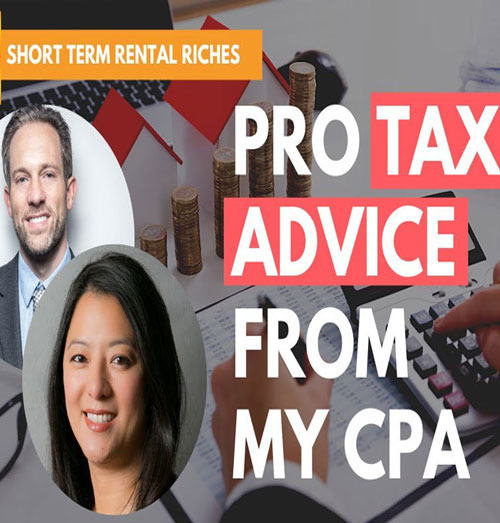Learn the 4 Risky Markets to Avoid for short-term rental investing success: oversupply, speculation risks, STR laws, and crime rates. Invest smarter with these expert tips!
Real estate markets are constantly evolving, and short-term rental investing adds another layer of complexity. As an Airbnb host or STR investor, it’s not just about demographics and trends. You also need to consider unique factors like oversupply in short-term rentals, the potential for unfavorable regulations, and even crime rates in your chosen market. These risks, if overlooked, can undermine the success of your investment.
In this video, we’ll unpack four reasons why some markets are just too risky for your next Airbnb or STR property. From volatile real estate speculation risks to markets with increasing short-term rental competition, knowing how to identify red flags can save you from costly mistakes. We’ll also talk about how guest reviews and selecting the right property type can help you stand out in competitive markets. So, whether you’re using tools like AirDNA to assess market trends or navigating landlord laws for STRs, these tips will ensure your next move is a smart one.
5 Key Points:
-
Speculative Markets Are Risky: Investing in areas reliant on unpredictable appreciation is a gamble. Focus on markets with stable growth and strong fundamentals, avoiding those known for real estate speculation risks.
-
Oversupply Can Hurt Profits: Use tools like AirDNA to analyze how new short-term rentals impact average occupancy and daily rates. Markets flooded with STRs often lead to declining revenues.
-
Landlord Laws Matter: Research local landlord laws for STRs to ensure you’re compliant. Regulations are constantly changing and can significantly affect your ability to operate.
-
Crime Rates and Reviews: High crime rates can hurt both property value and guest experiences. Negative reviews stemming from unsafe neighborhoods can drive away future bookings.
-
Differentiation is Key: In oversaturated markets, focus on delivering exceptional guest experiences and maintaining strong Airbnb reviews to outperform the competition.
Investing in short-term rentals offers fantastic opportunities, but only if you approach it with the right knowledge. Understanding real estate speculation risks, avoiding oversupply, navigating landlord laws for STRs, and prioritizing safe neighborhoods are critical steps toward success.
Stay ahead by leveraging tools like AirDNA, focusing on guest reviews, and staying informed about market trends.
—
Need help managing your short-term rental and you don’t want to go it alone? Shoot us a message here and we’ll see if we can help.
Are you enjoying the podcast? Please subscribe, leave a rating and a review, and share it! This helps us reach others that may find the info helpful as well.
You can find all of our links here including our website, recommended resources, upcoming live event, short-term rental playbook, Instagram, and more!
Click Here to view TranscriptWe know as real estate investors that markets are always changing, right?
When we say the real estate market, we’re actually talking about thousands of individual markets.
And they’re changing based on people moving in and people moving out.
And that, of course, really affects our short term rentals.
And so this week, I want to jump into four reasons that make a market riskier than another market when it comes to investing in short term rentals.
Stay tuned.
Welcome to Short Term Rental Riches.
We’ll discuss investing in real estate, but with a specific focus on short term rentals.
Quick, actual items to acquire, manage and scale your portfolio.
I’m your host, Tim Hubbard.
Welcome back to the show, I’m glad you’re here again.
This week we’re talking about four reasons that might make your market extra risky, or if you’re planning on investing in a market, you wanna keep an eye out for these things.
I’m currently down here in Medellin, Colombia, where I spend about half the year.
If you’ve been listening to the show for a while, most of you know that.
And something interesting has happened here.
I came down here for the first time in 2015, and people really love this place.
They continue to come back.
Tourism has boomed, and with all of that growth in tourism, there’s also been a really big growth in hotels.
So they are literally adding thousands and thousands of hotel rooms, which of course, affects how our short term rentals do.
There’s big names that have come in here, like Marriott and Hilton, and lots of independent hotels.
And so with all this new demand, the market’s becoming a bit saturated.
And we know that because prices are falling.
And so if you’re looking to invest in a new market, this is a really crucial thing to pay extra special attention to.
We’ve talked about it before.
There is a relatively easy way to figure this out before you pull the trigger and purchase a property in a new market.
And that’s to use a tool like airdna.co.
You can simply pull up your market.
I would suggest going back as far as you can, at least three years.
You can see the amount of units that have been added in that market.
And then you can also see what the average revenue has done.
Or you could look at that on an individual basis, breakout revenue into occupancy and ADR.
And so if that revenue is dropping while a bunch of units are being added to the market, then that means that that market is becoming saturated.
Now, we can’t stop there, though.
Let’s say you’re buying a five bedroom home in a market.
It doesn’t mean necessarily that the five bedroom homes are saturated.
It could be that it’s saturated or oversupplied with one bedrooms.
And so you’ll want to dig into that a little deeper and find out the supply that’s being added based on unit type or the size of the property.
So these things, luckily, are pretty easy to find out these days.
There is one saving grace as a short term rental investor or owner that’s actually going to protect you from oversupply.
And I’ll get to that in just a second.
But one other thing that’s going to help you perform better than the market is just being a little different, right?
So if your property is different, if there’s a bunch of one-bedroom hotel type accommodations, and you have a tree house or you have something unique about your property, you have a pool where most people don’t have pools, or you have a jacuzzi, or you have an amazing view, or something along those lines that’s making your property different, well, then you can still do really well, right?
We know that the averages in any market are just that, they’re an average.
And there’s some properties that perform really well, and there’s some that are at the very, very bottom.
And so, don’t let me discourage you.
I just want to make sure that you’re doing your due diligence before you get into a market.
So, why does oversupply actually happen in the first place, though?
A lot of that comes from construction lags.
So, if you’ve been listening to the show again, you know that I’ve been working on a project down here.
For over two years now, we finally just got our permits approved and we’re building.
But a lot’s happened in the last two years, right?
A lot of new hotels have come in place.
Luckily, our project is more of like a boutique resort.
And so, it is quite different than most of the properties coming on board.
I still feel really positive about it.
And I’m excited to give you guys updates in the future.
But construction takes a long time, right?
And we see this in the US, where people are investing in a market.
They apply for permits.
They do construction.
I mean, this process can take up to five years, right?
And so, if you started that process years ago, when a market wasn’t over supplied, well, it’s very likely that within those years, it could become over supplied.
So construction is inherently a little more risky just because of that.
One of the other reasons that a market becomes over supplied actually brings me to our second risk factor, and that is speculation.
So what exactly is speculation?
Well, if we look in the dictionary, it defines it as the forming of a theory without firm evidence.
So this could be you entering a new market, expecting your average daily rents or rates.
To be at $300 when there’s no real proof of that, or maybe the rest of the market is at $200 for a like size property.
This could be you buying an apartment complex, expecting to raise rents, $300 per unit, when in fact, there’s not really anything like that in the market, and you maybe have the same type property, right?
So we got to be really diligent in this part.
Something else that happens with speculative markets is that it attracts a lot of, I guess you could say, less experienced investors, right?
They see rates or property values going way up and they want to jump in.
They want to get a piece of the pie, right?
And so even if you’re doing all your due diligence, if you’re in a market that’s speculative, it’s going to attract more people.
And of course, if that means short term rentals, they’re relatively easy to get started, right?
It doesn’t take very long to furnish a property.
And so we have to be really weary of that.
If we look at markets like Miami or Las Vegas or Phoenix, we can see that after the last crash in 2008, 2009, prices plummeted, right?
And now they’re way back up again.
I mean, there’s literally been a 200% difference in price just over the last decade for a lot of those properties.
So if you’re getting into a market without any real numbers or real proof that your property could potentially perform at what you think it is, that is speculation and that could leave you in a bad place if you needed to sell.
So be weary if you’re planning on getting into a market because you’ve heard a lot about it.
Well, there’s probably a lot of other people that have heard about it as well.
So make sure you run your numbers.
Let’s get into risk factor number three.
And this is not new to any of you.
This is regulations.
We know that lots of places have really cracked down on short term rentals.
If we look at New York, for example, where they completely banned it in the city.
But if you’re investing in a market that’s historically been landlord friendly, then you’re gonna have that on your side, right?
If you’re in a, I hate to pick on it, but state like California, where I’m from originally, the writing is kind of on the wall, right?
Most of those cities have put in regulations, where maybe they have a 30 day minimum.
But if you’re in a state where the laws have been much more friendly, and maybe they’ve banned the banning of short term rentals statewide, well, that’s a pretty good sign, right?
Of course, we don’t want to get into a market where there are no regulations.
That’s really the riskiest time, right?
If there are no regulations, that means they could be passed.
But if you get into a market that’s in a landlord friendly place, or maybe you already have a property there, there are oftentimes a grandfather type law that goes in place.
Again, you don’t want to put all your eggs in this basket and count on this.
But if a state or a city is typically more landlord friendly, then the chances of your property getting taken down or banned in that area are less likely.
They’re not zero, right?
It could definitely happen.
So you want to make sure you have some backup plans.
I’ve dedicated years and hundreds of thousands of dollars to trial and error to figuring out how to manage my personal portfolio remotely.
And it wasn’t always easy and it took a long time.
But now, my amazing team can professionally manage my properties without me.
And good news, our team can also manage yours.
Let us save you the stress and headaches and some money by offering you an industry low fee.
To find out more about partnering with us, head to strriches.com, hit the property management button, answer a couple quick questions and meet with me personally.
That’s strriches.com.
Rest easy, knowing that with my team, your properties will be in excellent hands.
Let’s go ahead and jump into number four.
I don’t want to beat up the regulations too much because we talk about that a ton.
The best thing is to get in a market where you know, with 100% certainty, that you can rent the property there.
Number four, crime.
So this is a little trickier one, right?
A lot of times we see crime statistics on the news that say, oh, the homicide rate doubled in Detroit or doubled in whatever city it happens to be.
But we have to kind of take those statistics with a grain of salt.
Remember, if let’s say there was two homicides and it went to four in a year, that’s basically 100% increase.
And so a lot of times the news likes to take these numbers and sort of put them in a headline that’s really going to grab our attention.
But the reality is that places, you know, that every city has places that are going to be a little safer than others.
And a lot of times the crime statistics are sort of in one particular part of the city.
So of course, if we’re investing in a market or in a new city, we want to understand where we’re investing.
We want to understand the neighborhoods, because a lot of times you can cross the street and you can be in a totally different neighborhood, right?
And there’s quite a few downsides to crime, right?
Not just the headlines coming in that might deter more guests from wanting to travel to a place, but it really does affect property values, right?
And it’s kind of a slippery slope.
So we want to be on the other side of that.
You know, you hear about gentrification all the time.
This is pretty easy to see if you’re driving around a neighborhood and you’re seeing more and more homes being purchased and renovated and cleaned up and then also sold relatively quickly, then that’s a good sign that you’re in the path to progress.
Now, if you’re looking in an area and there’s lots of properties for sale and they’re not selling, well, that’s not a very good sign, right?
And unfortunately, there’s not a whole lot we can do if we have a property that’s in an area that’s sort of going downhill, right?
Our options are really to get out.
So if you’re in that situation, I hope you can make things work well for you.
I hope you’re not in a situation where you’re losing reservations, your occupancy is dropping.
And that leads me to my last point is that as a short term rental investor, there’s a saving grace here, right?
If we get into a market and we have lots of reviews and they’re really good reviews, a lot of these things don’t really matter, right?
If we have 500 reviews and our neighbor has 5 and the market’s really becoming oversupplied, well, we’re still going to get the benefit of being more visible on the platforms, right?
The platforms like Airbnb and booking.com, they know that people have enjoyed our property in the past and that there’s a very strong likelihood that they’re going to continue to enjoy it.
And so that’s a property that they want to rent out.
And so if you get into a market early, even if it becomes oversupplied, you can still do really well.
We know that two properties that are basically identical can earn very, very different amounts.
And so having good reviews, you got to make sure you get good reviews, right?
And having a lot of them can be your saving grace.
And even if you’re in an area that’s slightly deteriorating, right, we know most of the time when we list our properties, we’re not actually giving the exact address.
And for someone visiting our property for the first time, they don’t really know the neighborhood.
Hopefully, you know, you don’t have properties and places where people are actually in jeopardy, you know, their safety is in jeopardy.
But if you’re in an area that’s kind of on the fringe, but you have really good reviews and you do an exceptional job with your guest communication, all that, well, then you can still be in sort of an iffy area and do really, really well.
And even when it comes to regulations, if you have a property and you’ve built up a whole bunch of reviews and there were no regulations, as I mentioned, not always, but sometimes there is that grandfather law.
And so if you get in earlier, you have all of these benefits.
I hope you’re already in some markets and you’ve experienced this yourself.
If you’re looking to get into a new market, consider these things.
Oversupply is really easy to find out these days.
Crime rates are really easy to find out these days.
Regulations are really easy to find out these days.
And speculation, just make sure that you are running your numbers and then you won’t be speculating, right?
If you have a hard time running numbers and you’re not sure if you’re speculating or not, well, I’m excited to have a guest on next week that does exactly this and he’s been doing it for a long time.
So we’ll have some great tips for you to help you do this on your own.
And until then, until next time, I hope you have a fabulous week.
Whether you’re just getting started or you have dozens of properties, one thing remains the same.
Poor management can crush your investment returns.
Our team has learned a lot managing over 40,000 guests and we’ve compiled our biggest takeaways into a handy guidebook to help you better manage your property.
Equipped with checklist for guest verification to pricing strategies, it breaks down our whole process from start to finish.
Best of all, it’s free for you for being one of our loyal subscribers.
You can get your copy by going to strriches.com.
That’s strriches.com and I hope it helps you earn higher returns with less headache.















